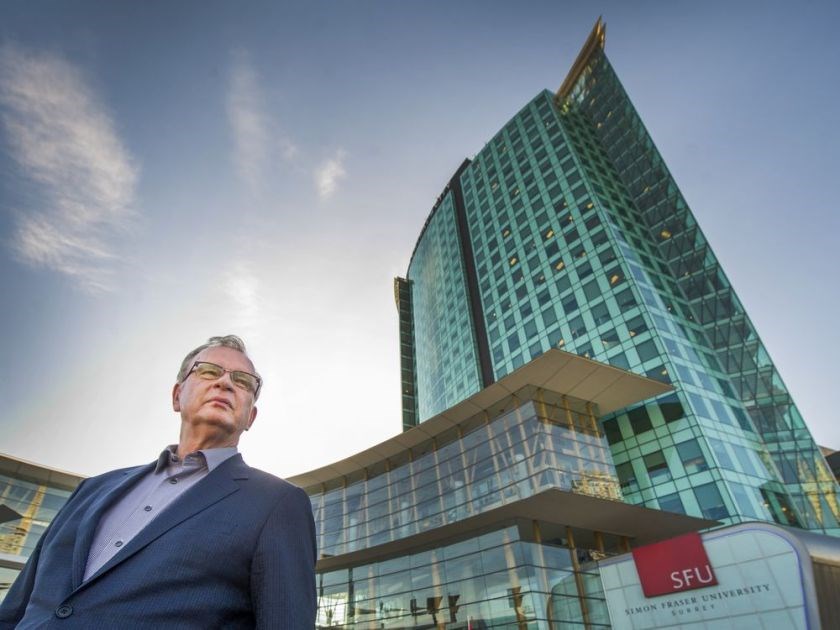The province is committing $17 million over five years toward a new quantum computing institute at Surrey’s Simon Fraser University campus.
The creation of the Quantum Algorithms Institute is part of a government effort to build out what it calls a second downtown for the Lower Mainland.
B.C. Jobs, Trade and Technology Minister Bruce Ralston, MLA for Surrey-Whalley, said the institute will be housed by SFU, but its partnership model includes all B.C. post-secondary institutions and quantum computing companies already established in the province.
“This is only a beginning and we will attract much more once this institute is up and running,” said Ralston.
The institute will first operate out of existing infrastructure, either on campus or in nearby buildings, said SFU president and vice-chancellor Andrew Petter. Should the institute expand, Petter said a new building may be required.
Petter cited the vision of late campus architect and visionary Bing Thom who wanted to transform Surrey from “struggling suburb to a dynamic city centre.”
Petter said the quantum computing sector is attracting youth and young adults and so, with Surrey having the province’s highest and fastest youth population, the location fits into the institute’s needs and goals.
The institute is to be the first brick laid on an envisioned “innovation corridor” in Surrey, said Premier John Horgan.
“Working with our partners, we will create an innovation hub where companies and talent will cluster, supporting our goal of a strong, sustainable economy that benefits the entire province,” Horgan said via a statement.
Surrey Mayor Doug McCallum said the city is on pace for record growth with $1.6 billion in building permits issued in the first three quarters of 2019.
Ralston said quantum computing will be important for supply chain logistics, medical research, transportation and materials development, among other things. McCallum said quantum computing has already been deployed by the city in one pilot project for a driverless bus.
The Quantum Algorithms Institute is creating a new graduate degree program in quantum computing — an initiative the province said would help secure more B.C. talent for the sector.
B.C. is already home to notable quantum computing firms such as Burnaby-based D-Wave Systems Inc., which has developed commercial computers for the likes of Lockheed Martin Corp. and NASA, and Vancouver software developer 1Q Bit.
While standard computers make calculations using two bits — ones and zeros — quantum computers rely on units known as qubits. Those qubits possess a superposition, allowing them to be one and zero at the same time to calculate all possible values in one operation.
To date, D-Wave has raised more than $200 million in funding for its technology.



